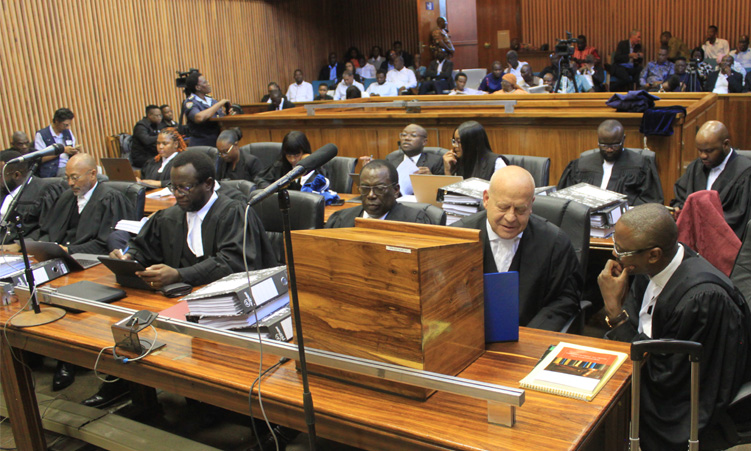THE global financial crisis has developed into a global job crisis and Government, trade unions and the private sector locally will urgently have to break with their ‘business as usual’ approach to address the crisis in Namibia.
Vekuii Rukoro, elected as president of the Namibian Employers’ Federation (NEF) for a third term on Wednesday night, painted a bleak labour picture at the NEF annual general meeting.
Even before the financial crisis, Namibia was burdened with an unemployment rate of between 37 and 39 per cent. Meanwhile, a significant number of people have lost their jobs with the closure of Weatherly International at Tsumeb and layoffs at Namdeb. Also, there have been some unnecessary job losses as a predictable outcome of the banning of labour hire, Rukoro said.
He emphasised the rapidly changing outlook for economic growth.
Just two months ago, the Bank of Namibia (BoN) estimated that the gross domestic product (GDP) will grow by 1,1 per cent this year, IJG Securities predicted 1,8 per cent and RMB Namibia Asset Managers expected 2,8 per cent. Since then, the BoN has dropped its expectations to 0,4 per cent, warning that it might have to be adjusted further downwards later in the year.
‘In fact, for the first time the word recession was mentioned in relation to Namibia,’ Rukoro said.
Namibia needs Government’s ‘urgent and effective’ leadership, Rukoro emphasised.
‘The entire country must be brought into a psyche of business unusual in addressing the number one socio-economic illness confronting Namibians for some time now, namely unemployment,’ he said.
Creating sustainable jobs demands more investment in the health service, speeding up the process of getting work permits, relaxing labour legislation, reducing tax rates and changing outdated policies on land tenure so that local black entrepreneurs can offer land as security, according to the NEF president.
Rukoro once again called on NEF members not to take retrenchments as an easy way out of the current economic difficulty. They should look at all possible alternatives to keep their companies profitable and only resort to retrenchments as the ‘very last alternative’.
Labour and Social Minister Immanuel Ngatjizeko, who attended the AGM, applauded this stance and appealed to the business sector to tackle the crisis with ‘innovation and creativity’.
One of the biggest lessons Namibia can learn from the current crisis is that social dialogue and tripartism, or the partnership between Government, trade unions and employers, are now ‘more important than ever’, the Minister said.
jo-mare@namibian.com.na
Stay informed with The Namibian – your source for credible journalism. Get in-depth reporting and opinions for
only N$85 a month. Invest in journalism, invest in democracy –
Subscribe Now!









